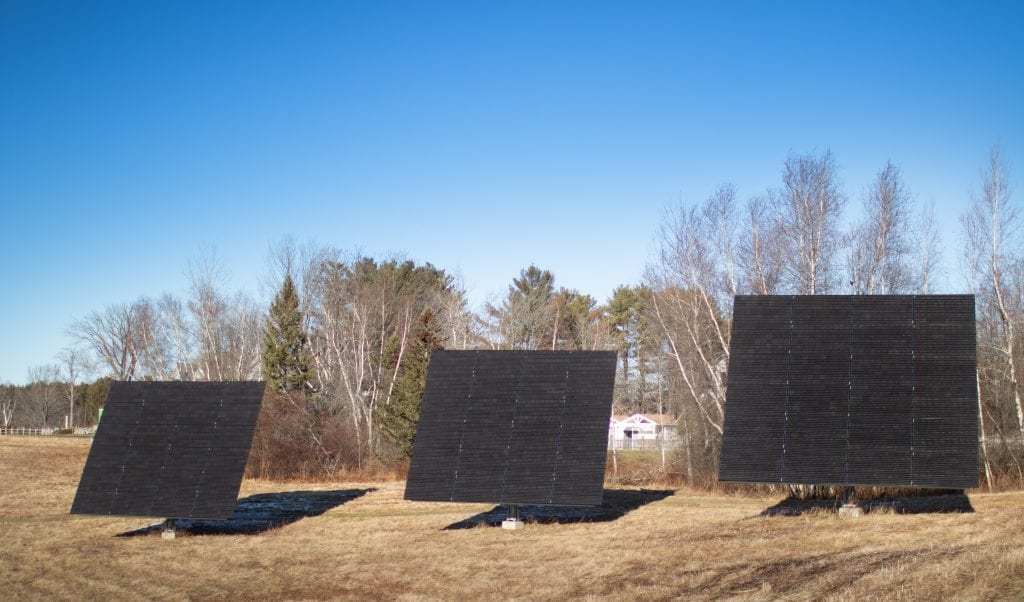
It is almost hard to believe that five years have passed since the solar panels were installed at Gilsland Farm but on this anniversary I thought it’d be fun to take a look at how they’ve performed over that time and hopefully dispel a few solar myths.
One thing that has become increasingly clear over the past five years is that we (as a planet) need to be doing more to reduce our carbon emissions. The UN Emissions Gap Report 2019 was alarming in pointing out how little has been done: If countries had acted 10 years ago, governments would only need to reduce emissions by 3.3% each year to reach the goal of limiting global temperature warming to 1.5ºC by 2030 (a benchmark for when climate change will have “less devastating” impacts). Instead, we are now faced with needing to reduce emissions by 7.6% each year to attain that goal. Maine Audubon has been taking substantial steps to reduce our greenhouse gas emissions and you can too.
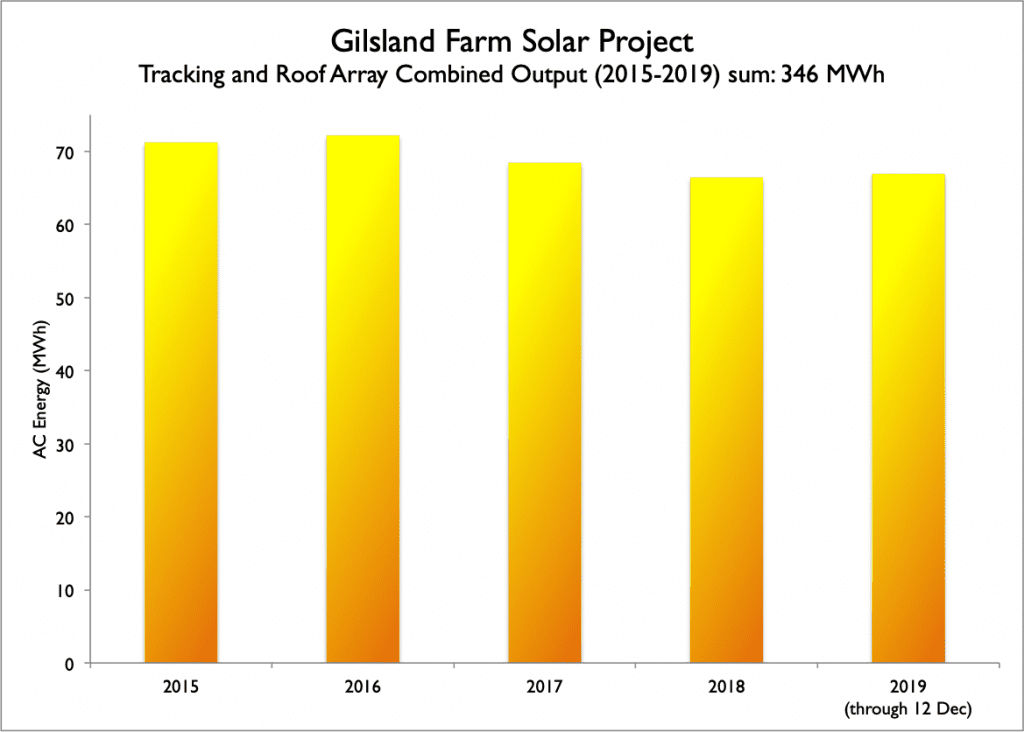
28% of greenhouse gas emissions in the US come from electricity production, and fortunately in Maine this number is only ~7% (down from around 25% in 2001). Renewable energy sources are increasingly important (though need to be implemented properly) and there is great potential from solar and wind. The solar panels at Gilsland Farm cover about 84% of our electricity use, and over the last five years have generated over 346 MWh! For context, here are a few examples of what 364 MWh is equivalent to:
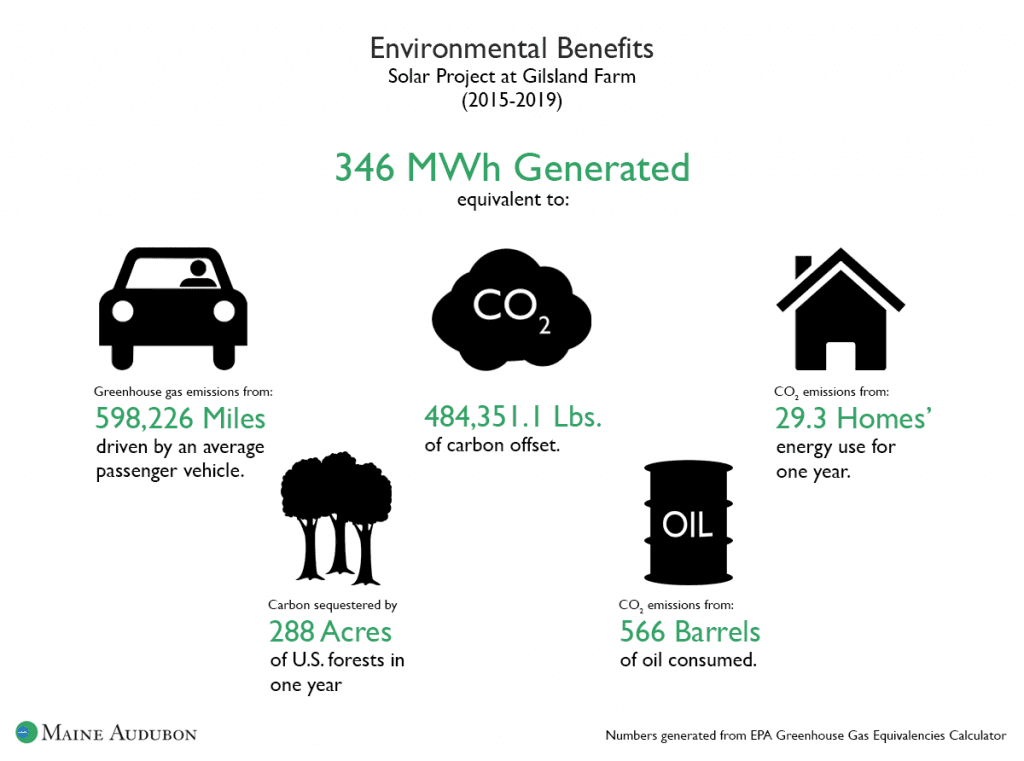
I should also point out that our maintenance on these panels has been minimal: one solar tracker needed to be “reset” after it stopped tracking, and one winter we had a little snow build up around the roof-mounted panels that needed to be cleared. Most panels come with a 25 year warrant and have an expected useful lifespan up to 50 years so there should be little worry in maintenance issues if you are considering your own installation.
Seeing these results at my workplace helped clear up solar myths and were a large influence in the decision to have panels installed at my home. The price of solar has dropped significantly (74%) over the past decade, plus current incentives and financing options can essentially swap out your utility bills. I highly recommend at least having a solar installer, like Revision Energy, do a site visit at your home to see the potential.
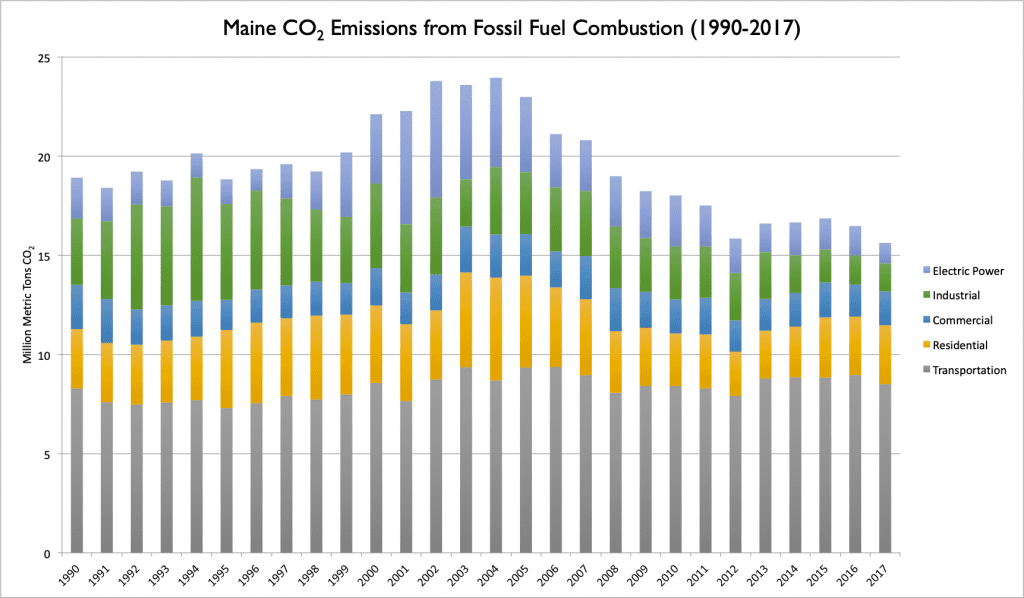
Transportation accounts for over 50% of Maine’s carbon emissions at about 8.5 million metric tons of C02 annually. Battery electric vehicles and plug-in hybrid vehicles are slowly making their way to the market and Maine’s increasing EV charging network will make these more feasible for people around the state to own. Maine Audubon joined that network by installing a FREE charging station (with dual Level 2, J-1772 plugs) three years ago. It has been exciting to see those go from virtually unused in the first year, to being used daily now.
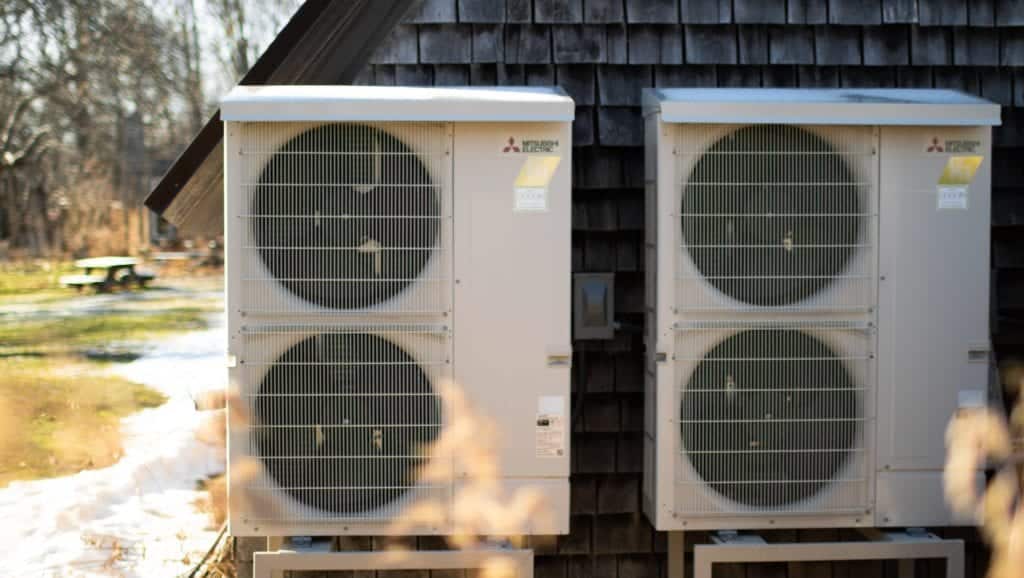
As Maine Audubon moves towards carbon neutrality, another big step was taken this summer with the installation of heat pumps in our headquarters building. When the HQ was built in 1976, it was called a “building that would showcase state-of-the-art energy generation and conservation measures” thanks to its “passive and active solar heating, a wood-fired furnace, heat storage, and both solar and wind energy generation.” A lot has changed in those 40+ years, including the furnace which was burning oil. The conversion this year to heat pumps takes us off that furnace, and will save 2,032 gallons of oil per year.
The intended takeaway here is that these small steps, whether on the individual or organizational scale, really add up. Climate change is threatening 2/3rds of North America’s birds, not to mention the increasing threats to Mainers from sea-level rise, changes in fisheries, increasing health threats (from air quality and vector borne diseases), etc. The impacts of climate change will be felt in Maine and we need to make changes to limit (or stop!) our carbon emissions.
